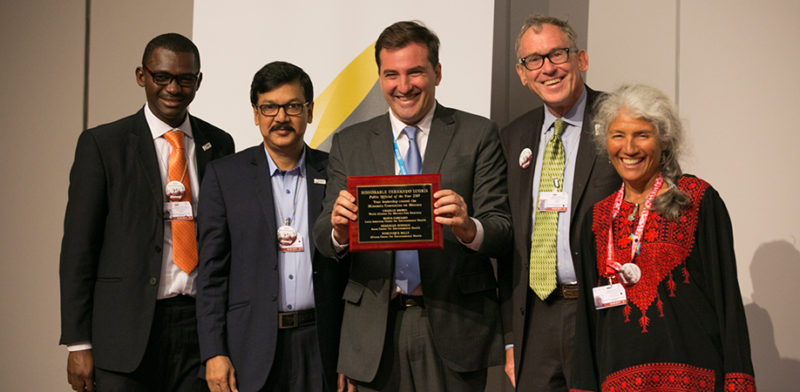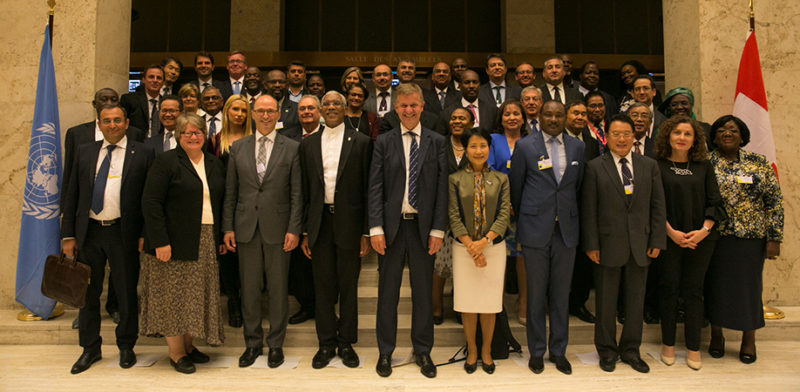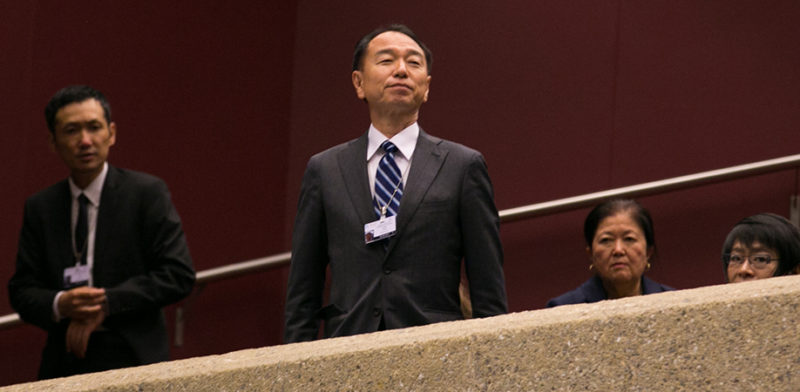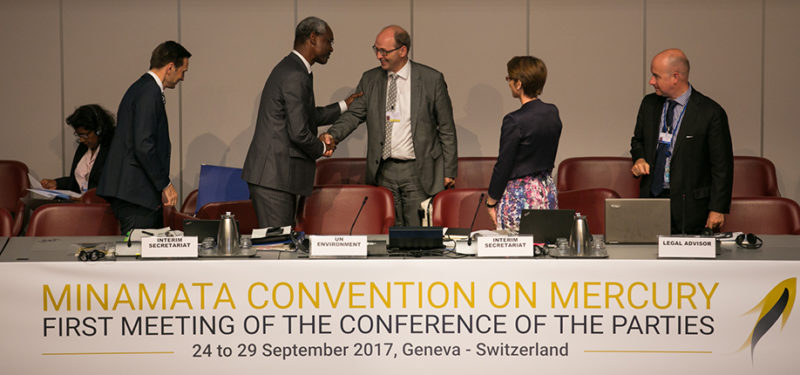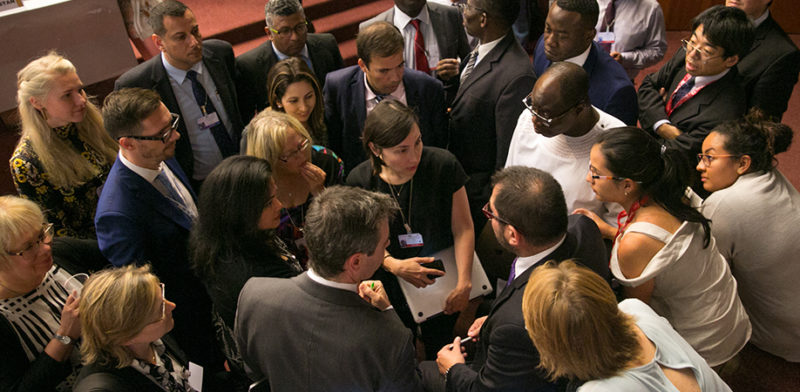- Advertisement -
Over 150 countries gathered in Geneva, Switzerland from September 24 to 29, 2017 on the occasion of the First Conference of the Parties to the Minamata Convention on Mercury (COP-1), ostensibly to mark a major milestone in their efforts to fight mercury pollution.
Considered one of the most dangerous chemicals to human health and the environment, mercury is a neurotoxin with a global reach.
The Parties to the Minamata Convention on Mercury, which entered in to force on August 16, 2017, explored ways to implement the new global treaty, which includes:
- banning new mercury mines and phasing-out existing ones;
- regulating the use of mercury in artisanal and small-scale gold mining, certain industrial processes and the production of everyday items such as certain compact fluorescent lamps, batteries and teeth fillings; as well as
- controlling the emissions of mercury as a by-product from a range of industrial sectors – including coal combustion.
